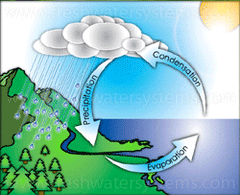
Distilled water is the choice of laboratories and pharmacies because of its high purity. A water distiller removes 99.9% of dissolved inorganics, bacteria, and chemicals from water. Despite its high quality, whether or not distilled water is safe to drink is not easy to determine. The effects of drinking distilled water remain an under-researched and frequently debated topic. Essential minerals like calcium, magnesium, and sodium are removed from distilled water along with the harmful contaminants, leading some to worry about whether it’s dangerous.
To understand the advantages and disadvantages of distilled water, it’s necessary to consider water’s role in the body, the sources of essential minerals, and how the body uses minerals. We are water filtration experts, not scientists or medical professionals, so we’ve researched common arguments and scientific facts to help you decide if distilled water is the best choice for your health.
Is drinking distilled water safe?
Yes, distilled water is safe to drink. However, you may find it tastes a little flat. Distillation purifies water in a natural process, similar to the earth’s hydrologic cycle. There are no added chemicals or disinfectants in the water that can harm you. What’s left out of the water is what causes worry.
A water distiller is so good at removing substances from water that nearly everything, including dissolved minerals, is removed. Some of these essential minerals, or electrolytes, are used by the body to carry signals between cells. Our bodies obtain electrolytes primarily through food. Water contains only trace amounts of minerals, but is it enough to make a significant impact? That depends on your health, nourishment, and level of physical activity.
Common arguments on drinking distilled water:
- Drinking distilled water creates health problems from the lack of essential nutrients and causes dehydration.
- Drinking distilled water is never a bad idea because the body cannot absorb dissolved minerals from water into the tissue.
- Drinking distilled water can be beneficial, but may not be the best choice for everyone, especially if the minerals are not supplemented by another source.
Water makes up 60% of the human body, so it’s important to make sure that water is safe and beneficial. We want to provide you with the information needed to determine whether you should choose distilled water or an alternative.
What is distilled water?
Distilled water is water that has been purified by a water distiller by converting water into steam, leaving contaminants, bacteria, and minerals behind. As the steam cools, it condenses back into a liquid and drops into a collection container. Distillation mimics nature’s process of recycling water, known as the hydrologic cycle. Home water distillers have one chamber where water evaporates and another where the steam is collected.
 |
 |
Learn more about how a water distiller works.
What does a water distiller remove
A water distiller removes total dissolved solids (TDS) from water, as does reverse osmosis (RO) and deionization (DI). A carbon postfilter is added to a water distiller to remove volatile organic compounds (VOCs) as well. Dissolved inorganic minerals and other contaminants make their way into the water supply as it flows through rich soil, receives chemical disinfection, or travels through pipes. Some dissolved substances like calcium or potassium are harmless, but many like arsenic or lead are dangerous. In excess, even minerals are detrimental to your appliances and health. Water distillers remove dissolved substances from tap water before you’re exposed to them, and they’re used to convert seawater into drinkable water.